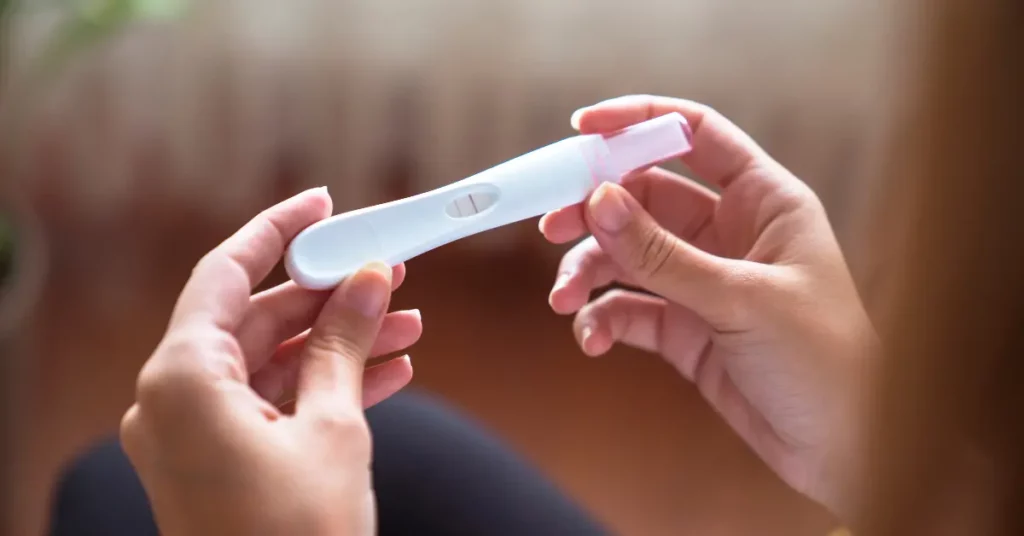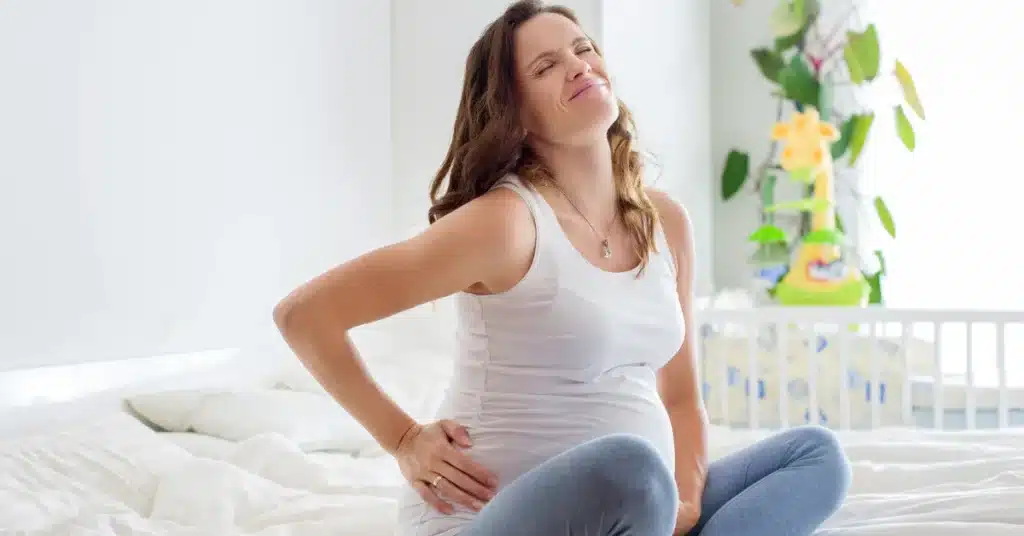Can You Get Pregnant After Ovulation? What Are the Chances?
Ovulation marks the prime time for conception, as it is when the egg is available for fertilization by sperm.
It is highly unlikely for someone to get pregnant while they are not ovulating.
However, the question often arises: “Can you get pregnant after ovulation?”
Also, how long after ovulation can you get pregnant? What is the best time to try, and what factors affect it?
Read on as we talk about the complexities of fertility and answer all the above questions.
How many days after ovulation can you get pregnant

Ovulation is a brief period, usually lasting around 24 hours, during which an egg is released and ready for fertilization.
Sperm, on the other hand, can survive in the female reproductive tract for up to five days.
This means that the fertile window extends beyond the day of ovulation itself.
Couples looking to conceive should focus on the days leading up to ovulation and the day of ovulation for the best chances of success.
Generally, the most fertile days occur 2-3 days before ovulation and on the day of ovulation itself.
However, there is still a chance that you get pregnant after 12-24 hours of ovulation.
The numbers are comparatively lower, but the possibility remains.
Even the American College of Obstetricians and Gynecologists (ACOG) states that pregnancy is possible by having sex any time between 5 days prior to and 1 day after ovulation.
Chances of getting pregnant after a positive ovulation test

Many couples rely on Ovulation Predictor Kits (OPKs) to pinpoint the most fertile days in a woman’s cycle.
These tests detect the surge (rise) in Luteinizing Hormone (LH) that precedes ovulation.
A positive result is an indication that ovulation is likely to happen in the next 24-48 hours.
The chances of getting pregnant after a positive ovulation test are significant, as it denotes the optimal time for
conception.
According to research from 2000, your chances of getting pregnant around ovulation are:
| Time of the menstrual cycle | Chances of pregnancy (approx.) |
|---|---|
| 6 days prior to ovulation | 3% |
| 3-5 days prior to ovulation | 18% – 24% |
| 1 or 2 days prior to ovulation | 21% – 26% |
| Ovulation day | 10% |
| 1 day after ovulation | 0% – 11% |
Another study that observed the probability of pregnancy throughout the menstrual cycle found that women were most likely to get pregnant on the day prior to ovulation (the 13th day of the menstrual cycle).
These studies were based on the assumption that sex had happened only once during your fertile window.
The odds of getting pregnant will increase as the number of unprotected sexual encounters during ovulation increases.
However, it’s crucial to keep in mind that factors such as irregular cycles or health conditions may affect the accuracy of these tests.
Additionally, the timing of intercourse is essential having regular intercourse during the days leading up to and including the day of ovulation improves the likelihood of successful conception.
Read Predicting Fertile Days Using Ovulation Tests: Key Tool to Help Conceive
Factors that can affect pregnancy after ovulation

Several factors can influence the likelihood of getting pregnant after ovulation.
These include:
- Sperm health: The quality and quantity of sperm play a crucial role. Healthy sperm can survive longer in the female reproductive tract, increasing the chances of fertilization
- Egg health: The age and quality of the egg released during ovulation impact conception. Women experience a decline in egg quality as they age, affecting fertility
- Uterine environment: A healthy uterine environment is essential for successful implantation and pregnancy. Conditions like Polycystic Ovary Syndrome or Endometriosis may affect fertility
- Timing of intercourse: Regular, well-timed intercourse maximizes the chances of sperm meeting the egg for fertilization
- Lifestyle factors: Factors like diet, exercise, and overall health can influence fertility. Maintaining a healthy lifestyle can positively impact the chances of conception
Conclusion
The probability of getting pregnant varies throughout the menstrual cycle.
The ACOG states that having intercourse any time between five days prior to and one day following ovulation can result in pregnancy.
The chances of conceiving increase with an increase in the frequency of sexual intercourse.
Ovulation Prediction Kits (OPKs) can be used to keep track of the most fertile days of the month.
However, factors such as sperm and egg health, lifestyle factors, and reproductive health can affect the chances of getting pregnant after ovulation.
If you wish to conceive, it is best advised to consult a healthcare provider for a better approach to increase the chances of conceiving.
Frequently Asked Questions
How many days after ovulation can you still get pregnant?
You can still get pregnant 1 day after ovulation. This is because sperm can survive in the female reproductive tract for up to five days, extending the fertile window beyond the day of ovulation itself.
Can you get pregnant when you’re not ovulating?
It’s highly unlikely to get pregnant when you’re not ovulating. Ovulation is necessary for the release of an egg, which is essential for fertilization. Without ovulation, there is no egg available for sperm to fertilize, thus making pregnancy improbable during non-ovulatory phases of the menstrual cycle.
How late ovulation can impact your pregnancy?
Late ovulation can impact pregnancy by shortening the time available for the fertilized egg to implant in the uterus. A shorter period between ovulation and menstruation could affect the uterine lining’s readiness for implantation. This may reduce the chances of a successful pregnancy or increase the risk of early miscarriage.
Can you get pregnant a week after ovulation?
It’s less likely to get pregnant a week after ovulation because the fertile window has passed. Once ovulation occurs and the egg is released, it is only viable for fertilization for 12-24 hours. Therefore, a week after ovulation, the egg is likely no longer viable, significantly reducing the chances of conception.
WowRx uses only high-quality sources while writing our articles. Please read our content information policy to know more about how we keep our content reliable and trustworthy.






